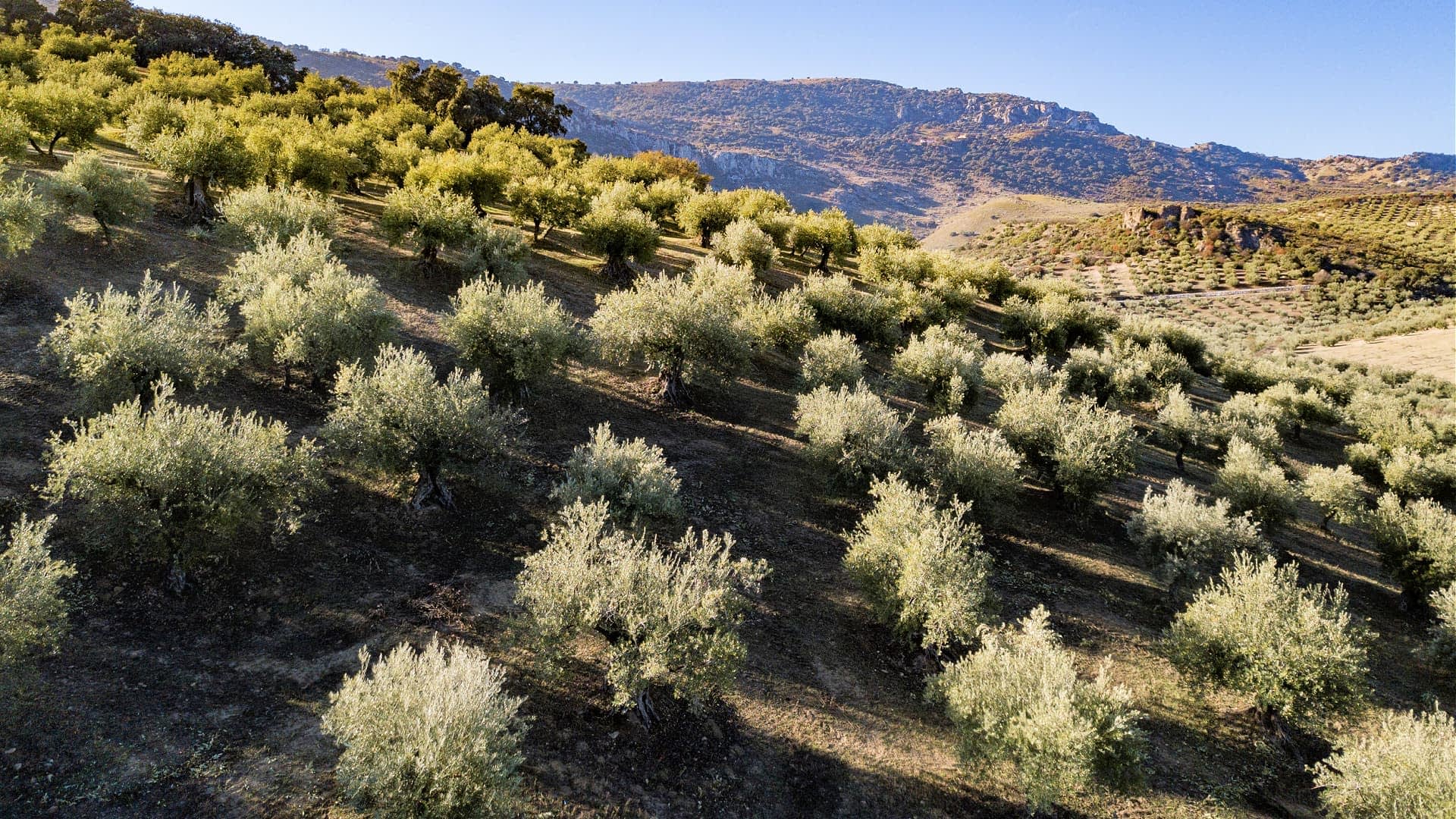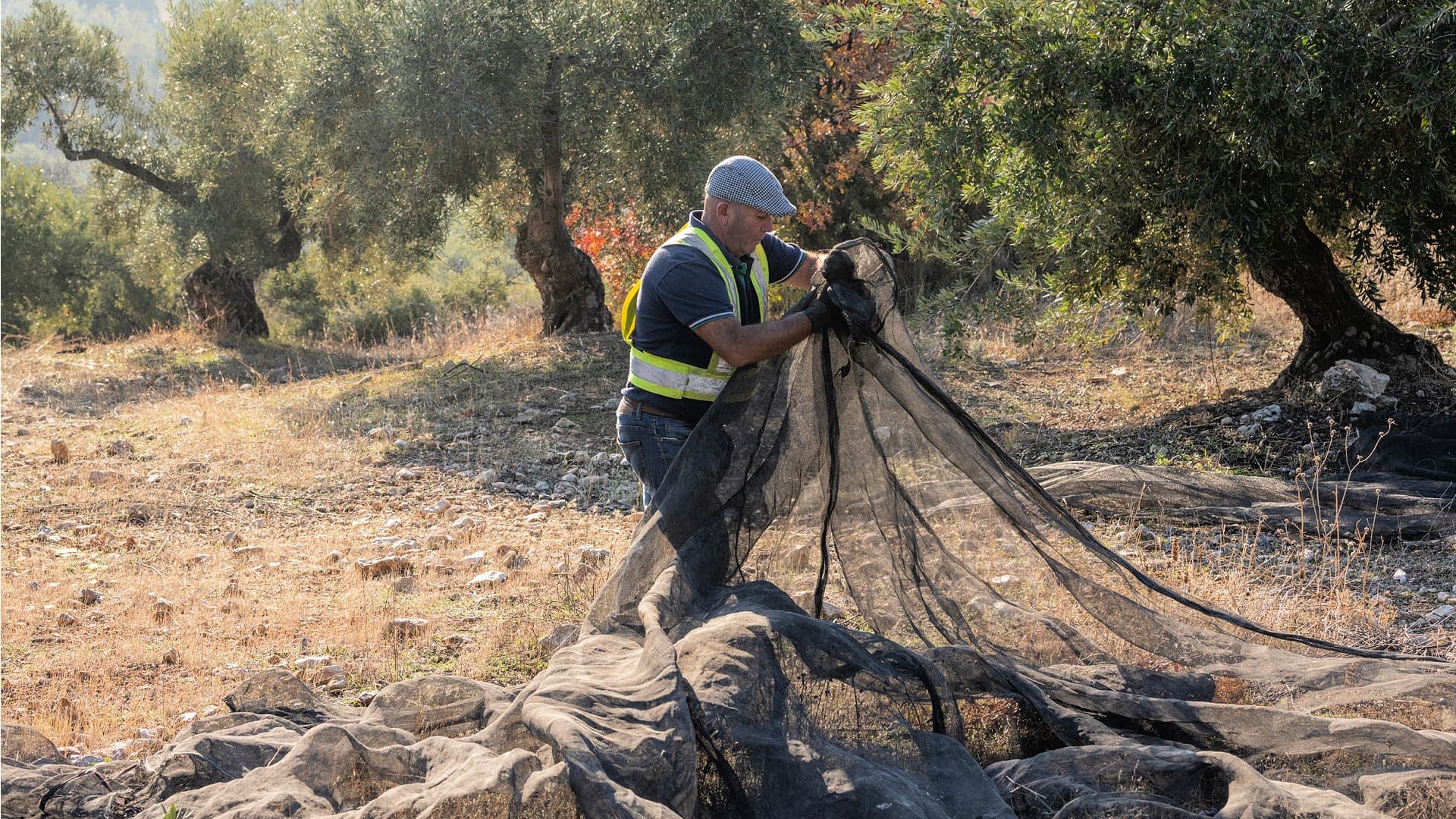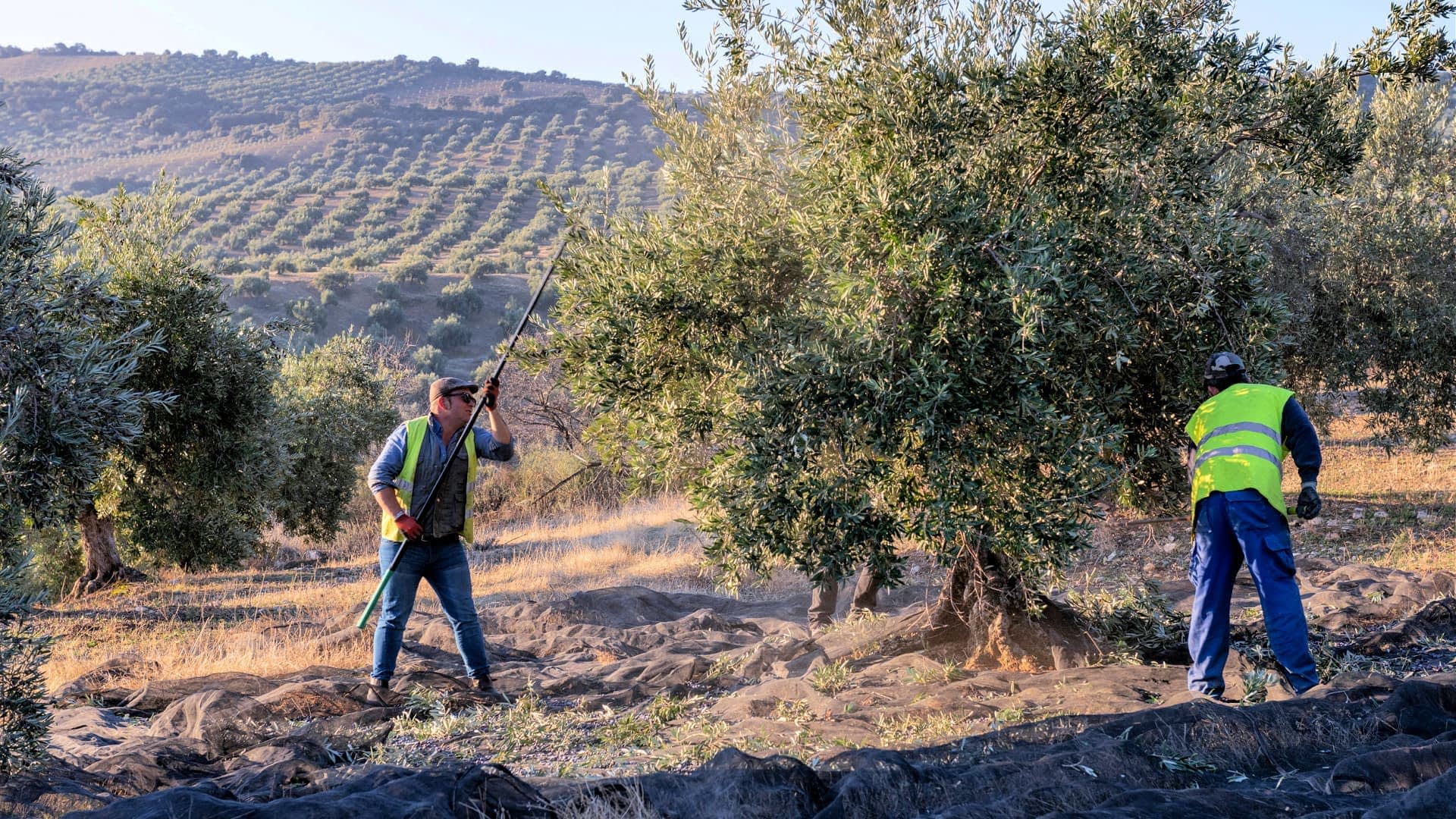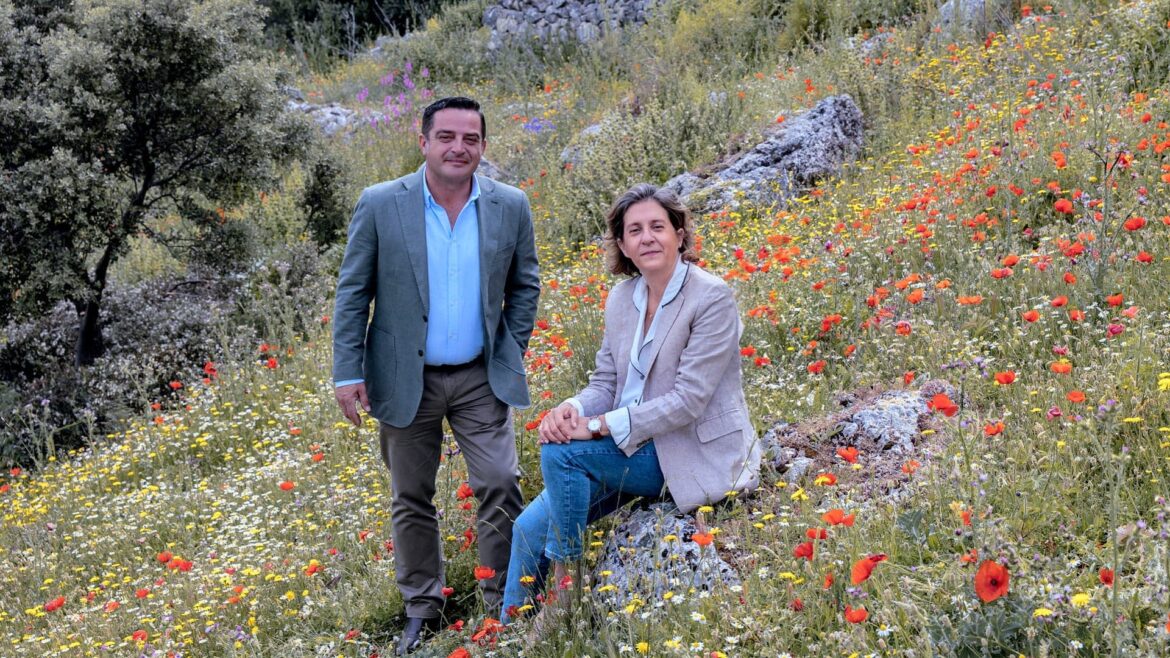Summary
Sucesores de Hermanos López, a family with nearly 200 years in the olive oil business, won three Gold Awards at the 2025 NYIOOC World Olive Oil Competition. The company, based in Andalusia, attributes its success to producing high-quality extra virgin olive oil and controlling the entire production process, despite facing challenges such as labor shortages and fluctuating market prices.
After nearly 200 years in the olive oil business, the family behind Sucesores de Hermanos López has become masters of producing award-winning extra virgin olive oil.
The Andalusian producer earned three Gold Awards at the 2025 NYIOOC World Olive Oil Competition for a trio of organic monovarietals: Morellana Picual, Morellana Picuda, and Morellana Hojiblanca.
“This is rewarding; it’s a recognition of a job well done,” said Antonio López Figueres and Andrea López Vericat, managing directors and shareholders of Sucesores de Hermanos López.
In this sector, there are challenges and opportunities. What matters most is to keep moving forward and adapt to change.- Antonio López Figueres and Andrea López Vericat, managing directors, Sucesores de Hermanos López
“For our company, producing high-quality extra virgin olive oil is the most important thing, and winning such awards confirms the level of quality we achieve year after year,” they added.
Since 2015, Sucesores de Hermanos López has won 24 World Olive Oil Competition awards.
Nestled in the Luque municipality of Córdoba province, at the foot of the Sierras Subbéticas Natural Park, the farm was established in the mid-19th century.
 Traditional groves on steep slopes are expensive and time-consuming to harvest, but these hills yield award-winning quality. (Photo: Sucesores de Hermanos López).jpg
Traditional groves on steep slopes are expensive and time-consuming to harvest, but these hills yield award-winning quality. (Photo: Sucesores de Hermanos López).jpg
“The history of Sucesores de Hermanos López goes back to 1840,” López Figueres and López Vericat said. “Generation after generation, the López family built an agricultural legacy that culminated in 1919 with the establishment of an olive oil mill.”
That mill was equipped with the most advanced technology of its time, including hydraulic presses and conical stones.
See Also:Producer Profiles
In several Mediterranean olive-growing regions, conical stones replaced traditional wheel-shaped grinders, as they offered a larger grinding surface and higher productivity.
“The consolidation of the estate was carried out by brothers Antonio and Vicente López Jiménez, the fourth generation, who expanded the business until the founding of Sucesores de Hermanos López S.A. in 1978,” López Figueres said.
“At that time, the company already had 600 hectares of traditional olive groves,” he added. “They were mostly rain-fed — an area that has barely changed since the 1950s and still provides the fruit for our extra virgin olive oils.”
 Favorable meteorological conditions have paved the way for another good harvest in Andalusia in the coming 2025 – 26 crop year. (Photo: Sucesores de Hermanos López)
Favorable meteorological conditions have paved the way for another good harvest in Andalusia in the coming 2025 – 26 crop year. (Photo: Sucesores de Hermanos López)
The company has always remained under family management. In the 1990s, the old mill was replaced by a two-phase continuous system.
“That’s when the company made a firm commitment to commercializing its products,” López Figueres and López Vericat said.
Today, the company attributes the high quality of its production to its ability to control the entire process.
Over 600 hectares, the Córdoba-based producer manages about 120,000 olive trees.
“The family estate is undergoing constant renovation to adapt to modern harvesting models and, necessarily, to reduce costs,” López Figueres and López Vericat said.
“Since the terrain is a limiting factor, with an average slope of 25 percent, this process is ongoing,” they added. “Today, our groves are roughly split 50 – 50 between traditional and intensive systems.”
However, the traditional groves are more challenging to maintain, especially since they require intensive manual labor.
“The 2024/25 season has been complicated in this regard. It’s hard to find people willing to work in agriculture, a widespread issue and a major challenge for us,” López Figueres said.
“It’s also increasingly difficult to find specialized workers for key tasks like pruning, which is essential to tree care,” he added.
According to the company, production costs in traditional olive farming are significantly higher than in super-intensive systems, because many tasks cannot be mechanized.
 Sucesores Hermanos de López has a mixed portfolio of super-high-density and traditional olive groves in Córdoba, Andalusia. (Photo: Sucesores Hermanos de López)
Sucesores Hermanos de López has a mixed portfolio of super-high-density and traditional olive groves in Córdoba, Andalusia. (Photo: Sucesores Hermanos de López)
“That means costs can even double or triple compared to super-intensive groves,” López Figueres and López Vericat said.
Additionally, a significant portion of the estate’s olive oil production is organic.
“We began organic production 15 years ago to meet the demands and expectations of our customers,” López Figueres and López Vericat said. “That said, our farming practices have always been environmentally respectful.”
“The biggest challenges of organic farming compared to conventional include higher production costs due to additional tasks such as manual weeding, as well as lower yields per hectare,” they added.
According to the managing directors, market dynamics and higher prices for organic olive oil do not fully compensate for the increased costs.
“Additionally, there is fraud in the market, where non-traceable extra virgin olive oils might be passed off as organic,” López Figueres and López Vericat said. “This increasingly affects the price gap between organic and conventional oils.”
In this context, the past two harvests were disappointing for the company, as they were for most producers in Spain.
“We felt the impact,” López Figueres and López Vericat said. “Being a small family business, this has prevented us from making major investments.”
“However, we make small improvements and investments every year that allow us to keep progressing both in the fields and at the mill,” they added.
The challenging conditions of the last two seasons have affected olive oil prices on the market and influenced production strategies for many companies.
“The past two seasons, especially 2023/24, saw extremely high prices at origin, levels never seen before, due to historically low yields. This influenced our decisions and we’ve had to adapt,” López Figueres and López Vericat said.
“In the current season, with an average yield and the potential for a good 2025/26 harvest, prices are dropping significantly,” they added.
“Still, it’s important that prices don’t fall back to previous levels. We need to give value to our extra virgin olive oil, and that starts with fair, reasonable prices at origin,” López Figueres and López Vericat warned, echoing recent concerns raised by several regional producers’ organizations.
So far, the 2024/25 season has been meteorologically favorable for Sucesores de Hermanos López.
“We’ve had abundant rainfall, which was much needed after years of drought,” López Figueres and López Vericat said. “We’re now waiting for a good spring in terms of temperatures to allow for good flowering. If so, the 2025/26 season is expected to be a good one.”
The company sells its olive oils in various formats, including bottles and bag-in-box. Consumer attitudes on what format to choose are still evolving.
“It depends on how they plan to use it. In general, all formats are well-received. The bag-in-box is the newest and has the least demand,” López Figueres and López Vericat said.
Bag-in-box protects olive oil from oxygen contamination during use and shields it from light exposure.
“We try to explain the benefits. It’s a format that, in the medium to long term, will replace PET. International consumers receive it better than domestic ones,” López Figueres and López Vericat said.
In their opinion, raising consumer awareness remains a very challenging task.
“Often, economic factors take precedence for consumers. It’s hard and slow work to educate them about the benefits of extra virgin olive oil,” López Figueres and López Vericat said.
According to the producers, more should be done to improve market control and consumer confidence.
“Tighter market controls by the authorities would help ensure that what’s being sold as extra virgin olive oil truly meets the standard,” López Figueres and López Vericat said.
“Low consumer awareness, combined with reports of widespread fraud in extra virgin olive oil marketing, makes it hard for people to understand and appreciate the true value of these olive oils,” they added.
One way to increase awareness is through oleotourism, a strategy the company has long embraced.
“We offer tourist apartments right in the Subbética Natural Park, and we encourage people to visit,” López Figueres and López Vericat said. “Olive oil tourism is a great way to help people understand how wonderful extra virgin olive oil is made.”
“In this sector, there are challenges and opportunities,” they concluded. “What matters most is to keep moving forward and adapt to change.”

